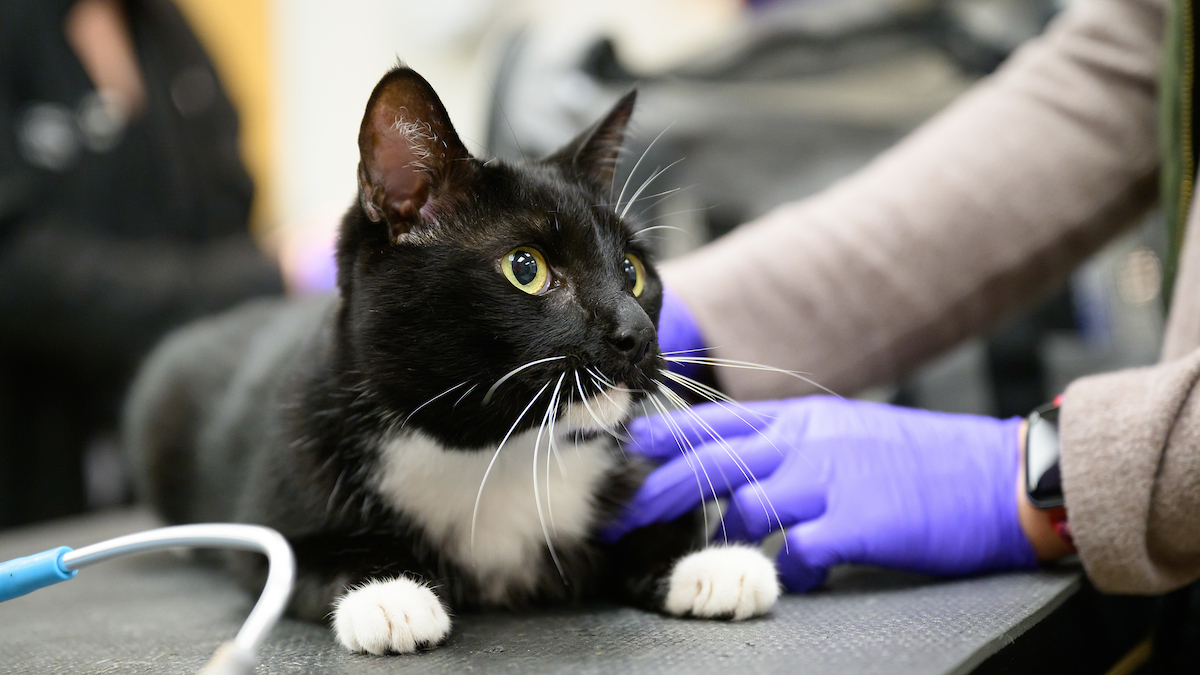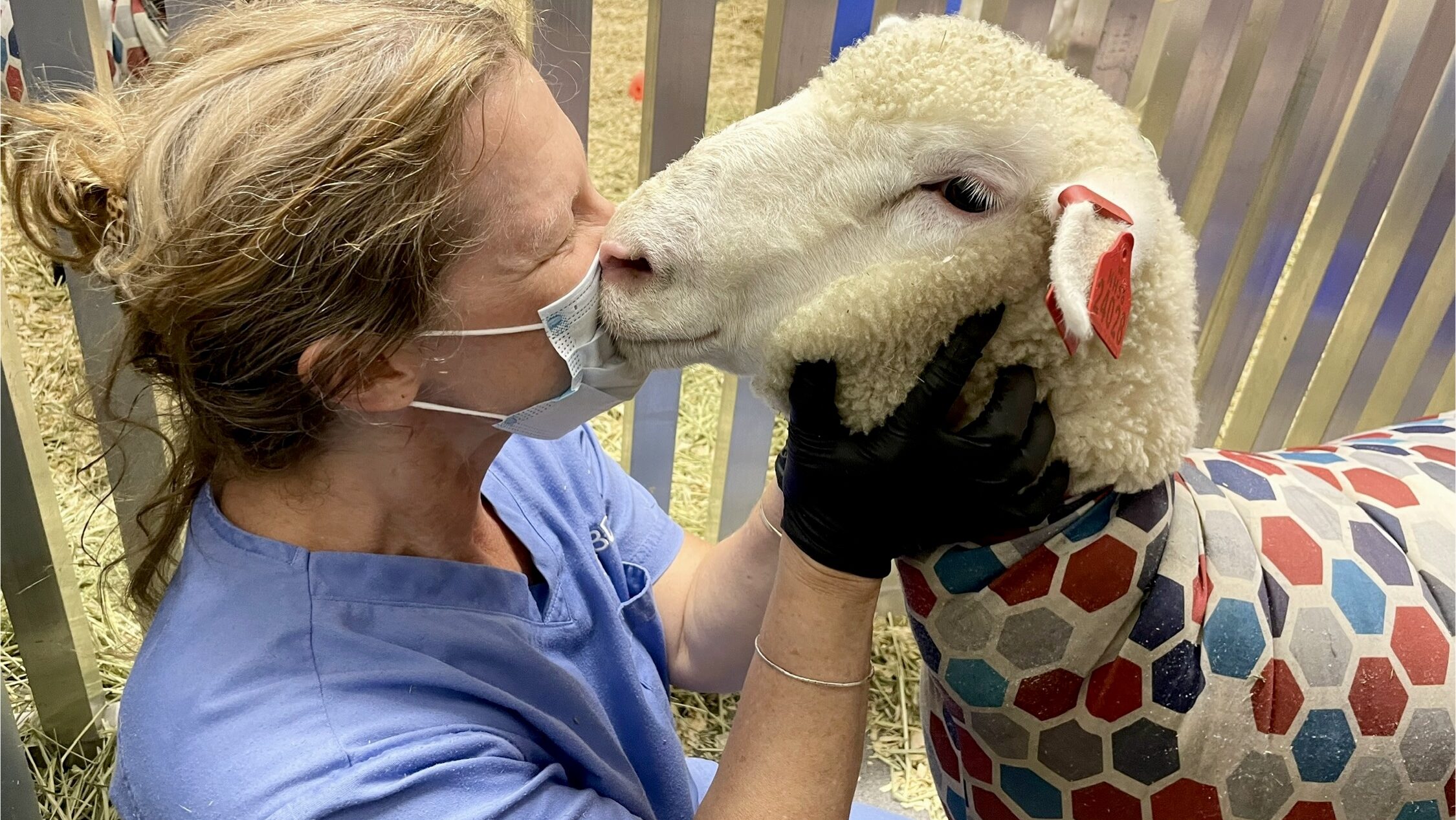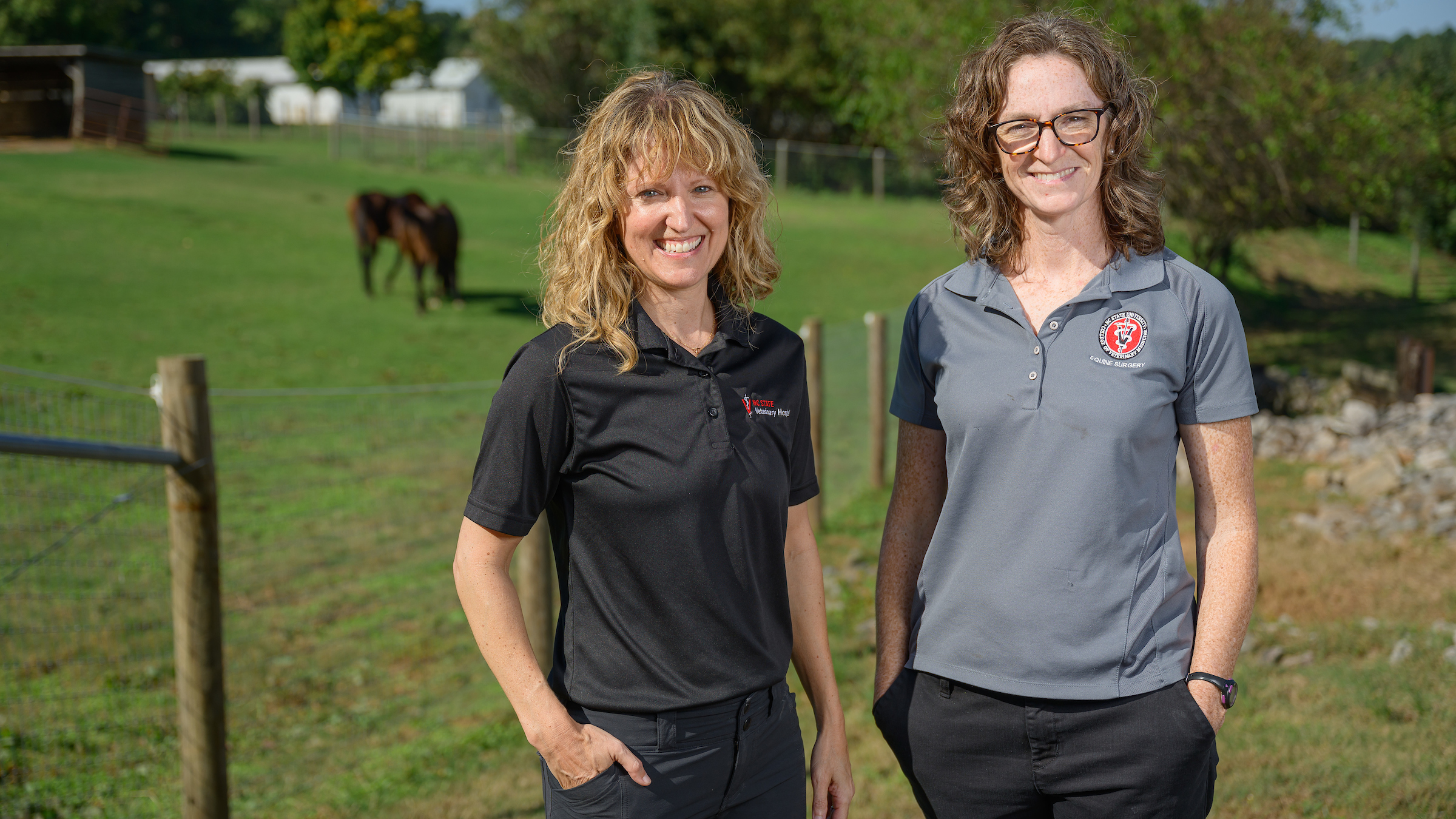New Initiative: NC State Answering Demand for a Feline Health Center
The NC State College of Veterinary Medicine is emphasizing the need for cat-focused care by creating a Feline Health Center, consolidating all of its feline expertise under one umbrella.
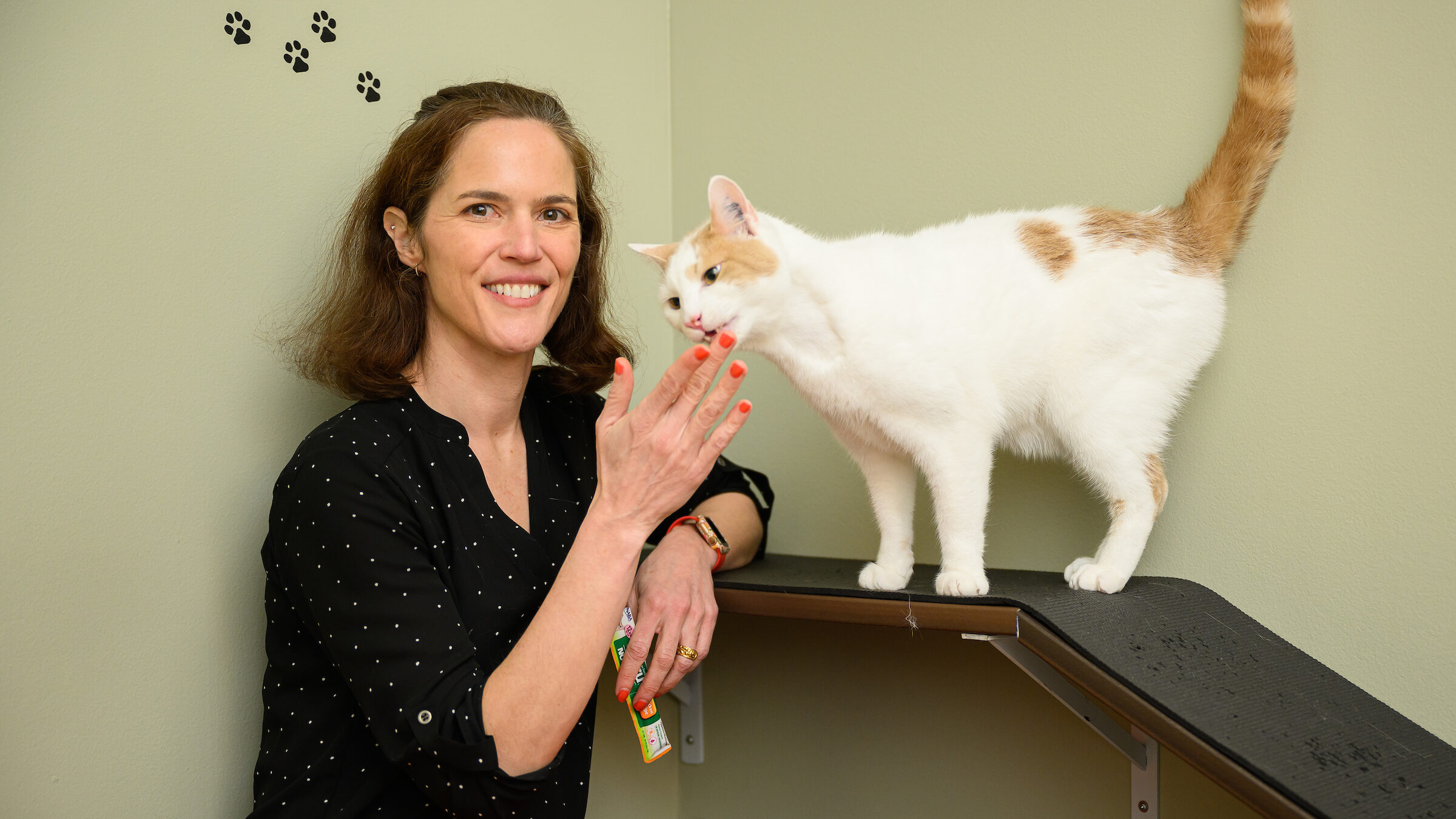
Noting a national need for more cat-focused care, the NC State College of Veterinary Medicine has created a Feline Health Center, consolidating all of its feline expertise under one umbrella.
“With our Feline Health Center, we will put an intentional emphasis on improving cat health in multiple ways, including through research, enhanced educational opportunities for veterinarians and owners, innovative care for feline patients and community outreach,” says Dr. Kate Meurs, dean of the NC State College of Veterinary Medicine. “Cats are a unique species, and cat lovers expect the veterinary profession to be able to address their specific health and behaviors.”
Dr. Margaret Gruen, associate professor of behavioral medicine, and Dr. Alex Lynch, associate professor of internal medicine and emergency critical care, are the center’s co-directors.
“We and our colleagues are excited by the idea of bringing all of the professionals doing incredible work in feline issues together in a structured way,” Gruen says. “Seeing all the interest and excitement can really move something forward when you reach this critical mass of people all interested in the same thing.”
Lynch says the center will be a place where people can easily access all of the innovative research, clinical care and educational opportunities available when it comes to cat care.
“We’re a big team of people where, we don’t necessarily all check every box individually, but across the board, we do,” Lynch says. “There are excellent researchers, excellent clinicians, outstanding educators, and together we do offer a lot. This center will be a good opportunity to share that.”
The center has four missions: clinical service, research, community outreach and education. Another focus will be making the NC State Veterinary Hospital, where some donors already have helped create cat-specific exam rooms, even more feline-friendly.
Recently, there’s been a growing awareness that cat needs are very different from dog needs, Gruen says, and many small animal veterinary hospitals are set up in ways that can be difficult for cats.
“We really are thinking critically about what cats need for the entire experience,” Gruen says. “What are cat needs for entering into the clinic and the hospital? What are cat needs for hospitalization and exam rooms? Every single piece, we’re really trying to take the cat-eye view of it. All of those pieces are important, and how we handle cats is how we show clients we are dedicated to excellent feline care.”
The center also will give cat lovers a chance to donate to research in specific ways to improve cat health, Meurs says, noting that the center already has funded two new studies on feline cancer.
As for the educational mission, Meurs envisions the center providing opportunities such as seminars in feline health both to veterinarians and to pet owners who can learn to recognize feline illness in their pets and better understand feline behavior.
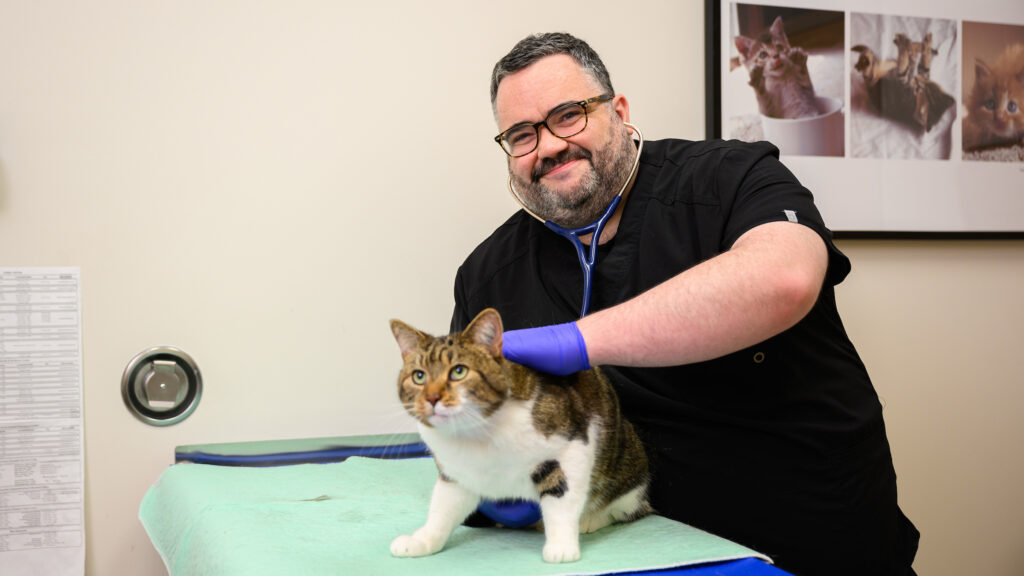
First cat-themed conference coming up
The center’s first Feline Symposium is already set for April 29 and 30, with NC State feline experts offering tracks for veterinarians on both days and information on nutrition, common toxicities and behavioral problems, among other topics, for cat owners on Sunday. Find more information and register here.
“The gist is, it has two streams,” Lynch says. “One is veterinarian to veterinarian, meant to be an opportunity to share more cutting edge, newer stuff that’s coming out, but then the other stream is really for owners. They are our big priority. The goal is to address topics on the questions they have, real-life questions we get.”
On the outreach front, Meurs also hopes to add to the mission of the NC State Mobile Veterinary Hospital, which currently focuses primarily on spay and neutering opportunities at shelters, to include more pet help for underserved cat owners.
Internally, Gruen and Lynch say, the center also will host informal events where all of the feline experts can meet to share ideas, research and projects.
“I have a greater awareness now just from the first meeting of what other people are doing, and that was kind of inspiring in itself, just to see how your little pocket of the vet school, where you’re doing something, fits in,” Lynch says. “This health center is going to be great to show us internally what’s going on, but I think more importantly to have an organized way to share the work that’s happening.”
Gruen says the center also will create more opportunities for veterinary students to learn even more about caring for cats.
“We want them to leave NC State knowing what cats’ needs are in the hospital and feeling confident in their cat handling,” Gruen says. “That’s an important thing as well. And that’s difficult to do because you’re balancing the cats’ needs. Cats can only be handled by so many people at once. Figuring out how to make that balance is difficult, but the center will help us.”
